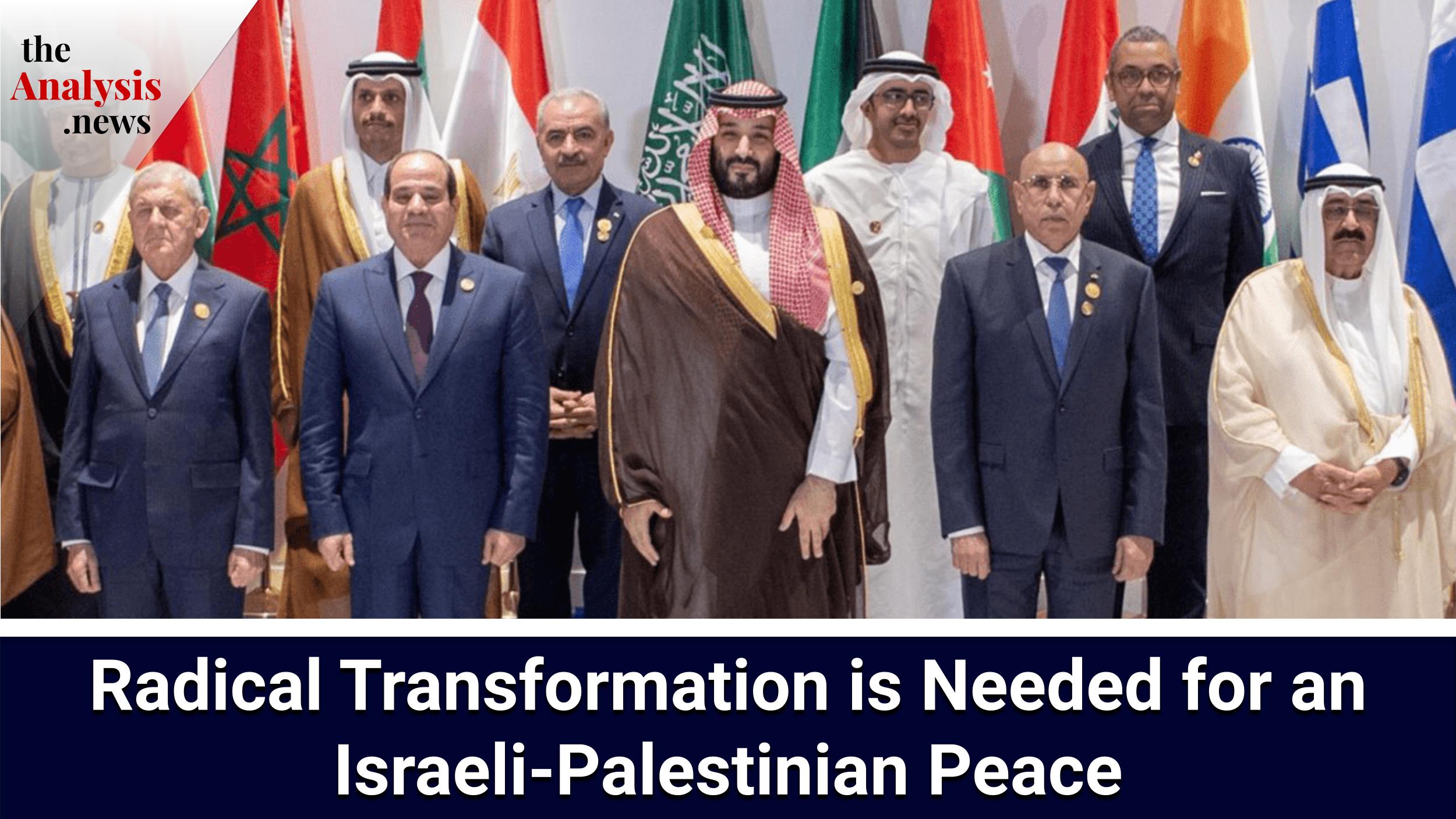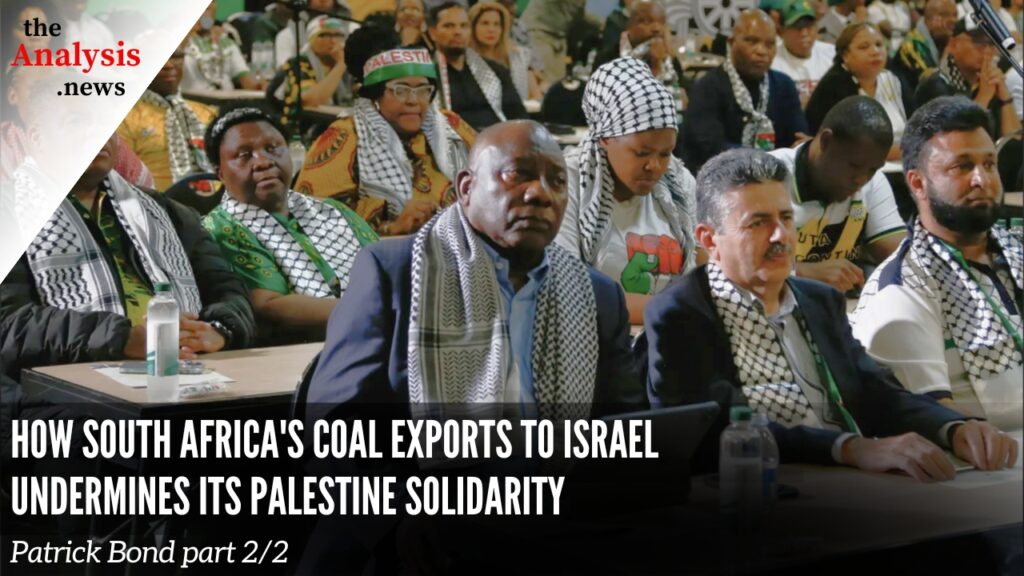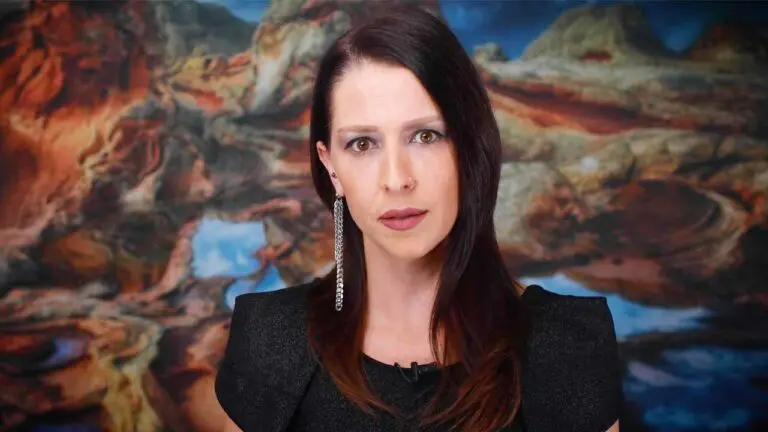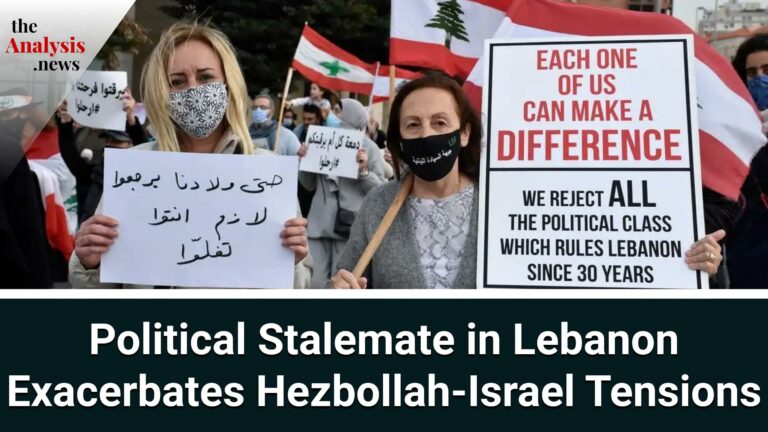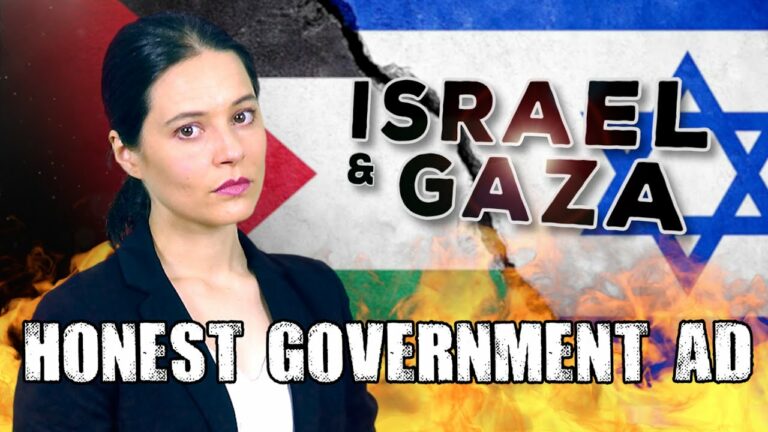Nadim Houry, Executive Director of the Arab Reform Initiative, discusses the role of Arab countries in the Middle East in demanding a ceasefire in Gaza and negotiating the release of hostages taken by Hamas. Normalization between Bahrain and the UAE with Israel, in addition to negotiations between Saudi Arabia and Israel, has been disrupted as the Israeli bombardment of Palestinian civilians in Gaza continues. Houry also addresses previous attempts to advance peace, such as the Saudi-led Arab Peace Initiative of 2002, and argues that a regional rather than bilateral approach with Israel is necessary, one which requires a non-negotiable end to settlement expansion in the West Bank and brings Iran and other regional actors into the fray.
Talia Baroncelli
Hi, I’m your host, Talia Baroncelli, and you’re watching theAnalysis.news. Joining me today is Nadim Houry, who will be speaking about the effort of Arab countries in the Middle East to bring about a ceasefire. Please don’t forget that we rely on your support to make this content. If you’d like to donate to the show, you can do so by going to theAnalysis.news. Also, don’t forget to get on our mailing list; that way, you’re always updated every time there’s a new episode. Help us beat the algorithm by liking and subscribing to our YouTube channel and like and subscribe to the show wherever else you listen to it, whether it be on Spotify or Apple. See you in a bit with Nadim Houry.
Joining me now is Nadim Houry. He is the Executive Director of the Arab Reform Initiative in Paris and has also worked as a human rights lawyer for Human Rights Watch for over 13 years. Thank you so much for joining me again, Nadim.
Nadim Houry
Thank you for having me.
Talia Baroncelli
The humanitarian catastrophe in Gaza is getting progressively worse. The death toll is now over 10,000 innocent Palestinian civilians, of whom over 4,000 are children. In response to Israel’s continued bombardment and siege of the Gaza Strip, we’ve seen several countries recall their ambassadors to Israel. Bahrain, Turkey, and Jordan recalled their ambassadors to Israel, and several countries in South America, such as Chile, Colombia, and Honduras have done the same. I believe Bolivia went a step further and completely cut diplomatic ties with Israel. How would you characterize the efforts on the part of Arab countries in the Middle East to bring about a ceasefire?
Nadim Houry
We’ve seen different initiatives from different Arab states, but these initiatives have remained, I would say, quite shy. I think there’s a high level of rhetorical condemnation from the official states. There’s a high level of anger in the different capitals and streets. But in practice, a lot of the efforts have been trying to convince the U.S. to put pressure on Israel to stop, frankly, the insane retaliation and attacks that we are seeing on the ground.
One interesting role has been the one played by Qatar, which has become the central mediator on the issue of hostages and trying to link the issue of hostages to a ceasefire. We’ve seen both the U.S., Israeli, and Palestinian leadership, because Qatar actually has some Hamas leaders there trying to figure out a way to negotiate this.
Another foreign role, and again, it’s not a common position because each country has different priorities, we’ve really seen Egypt very worried about what’s happening in Gaza. We will talk about it as well because Egypt is very concerned that part of the Israeli plan is to, again, force, relocate, and in some ways commit ethnic cleansing by pushing all Palestinians into Sinai, into Egypt, which is something that is a red line not just for Egypt, for the Palestinians, but also for the Arab States, and particularly amidst some of the more right-wing government of Israel. Also, we’re hearing messianic voices from some people, or actually ministers in the government.
Talia Baroncelli
Right, and you’re alluding to a leaked report by the Israeli Ministry of Intelligence, which is a think tank body within the Israeli military. It was suggesting that Israel should forcibly displace Palestinians into the Sinai Peninsula, which would, of course, be in contravention of international norms.
Most noticeably, a few days ago, Prime Minister Bibi Netanyahu was on ABC News, and he said that Israel should take control of it’s of its own security as well as the security of Gaza and potentially occupy Gaza for an indefinite period.
Now, up until that point, Secretary of State Antony Blinken had not drawn any red lines for Israel, but perhaps in response to the prospect of an indefinite occupation of Gaza, he did lay out some conditions for a durable peace. He did say that there should be no forcible displacement of the Palestinians, that the territory of Gaza should not be reduced, and that neither Israel nor Hamas should have a presence in Gaza after the war comes to an end, whenever that will be. It remains to be seen as to whether there will be any policy backing this up or if these are meaningless words by Blinken. Do you see this response as being far too little too late? Is Blinken too late to the show?
Nadim Houry
Are these words late? Definitely. Now, I’m not sure what too late means because the fighting is still ongoing, and there’s a real question mark about what is the Israeli game plan beyond bombarding and doing a military incursion.
I think the U.S. has been worried about it since the beginning, but unfortunately, and this is where I think they are too late, they went along with the Israeli plan of attacking without actually having any gain. As the death toll quickly increased in dramatic fashion, and as it became clear that there is actually no clear plan in Israel about what they’re trying to do beyond simply bombarding and trying to attack Hamas, I think the U.S. has started to roll back, and I would say, indicate what are its own views on the issue. It’s good that they’ve articulated this because I think they’ve realized as well, given the opposition of many of its allies in the region, chief of them, Egypt, but also realizing that this will just not pass.
Now, whether this becomes a red line, whether they will exert enough pressure on Israel, and again, here the U.S. is not just a bystander. They’re actually providing weapons, intel, and financial support to Israel. In a way, that’s on them as well. There’s a responsibility. If they can try to shape where this is going, they’ll be positive.
On the other hand, what we’re still seeing, and what is clearly lacking and what is immediately needed, is a ceasefire. What is the U.S. saying? The U.S. is saying, “Down the line, we don’t want to see another Israeli occupation of Gaza. We don’t want to see a forced displacement of Palestinians.” But at the same time, they’re also saying, “We don’t foresee any real ceasefire right now.” In a way, they’re giving mixed messages. They’re still telling the Israelis, “Go and bombard more, but you should know you cannot re-occupy.”
But what if the outcome ends up being a complete and total destruction of Gaza? The footage from northern Gaza right now is very telling. Then what? What does that solution look like? It was good to hear Blinken say that, but it was clearly insufficient, and what is needed is an immediate ceasefire to provide the space to start thinking about the next steps. But also, frankly, just to stop the killing, to stop the displacement, because, with each passing day, my concern is it becomes even harder to think about mediation in the long term.
Talia Baroncelli
Many people are also saying that the U.S. is culpable in this conflict, in this slaughter of the Palestinians, because they’re giving even more money, as you mentioned, and more arms. They’re approving $14 billion [USD] to give to Israel with no conditions tied to the use of that money. In a way, they’re wholly responsible as well for perpetrating this ethnic cleansing and slaughter of the Palestinians.
Why don’t we move to the role of normalization in the region? Bahrain and the United Arab Emirates signed the Abraham Accords with Israel. Thinking back to the ’80s, for example, Egypt still had diplomatic ties with Israel when the massacres of refugees in the Sabra and Shatila camps were taking place under Israeli watch. Would you say something similar might happen in the Middle East with ongoing normalization while there is no ceasefire? Or do you think that the already agreed-upon normalization might be put into question?
Nadim Houry
I think we’re clearly seeing, at minimum, a pause button for the normalization process. If we take a step back, what we saw in the last few years was, in a way—and this was something that Israel very much pushed for with the U.S., particularly with the Trump administration—I would say creating a disconnect between normalization between Arab states and Israel and the Palestine question, the rights of Palestinians. The clearest manifestation was the Abraham Accords, which, as you mentioned, the U.A.E. and Bahrain signed, but also Morocco and Sudan. Lately, there have been a lot of bilateral negotiations facilitated by the U.S. for potential Saudi normalization.
What these deals were premised on was somehow you make peace with Israel as an Arab state, and the Palestinian issue is sidelined or is left to some nice sounding words, i.e., the standards of living of Palestinians should get better, but really nothing about Palestinian rights, the right to self-determination, the right to move, and even the rights for Palestinian refugees.
In a way, what happened in Gaza now, more than a month ago, blew the strategy apart, literally. Because one, it has exposed many of these Arab normalizing states to internal anger, and they realized they could not continue with that popularly. Two, it has also shown the limits of this, even for Israel, because Israel’s strategy was to say, “Look, we don’t need a comprehensive deal with the Palestinians. We don’t need it for our security. We don’t need it for our economy. We don’t need it for our acceptability in the region. We’ll just sign deals with the other Arab states.” In a way, that approach and that strategy was not only short-sighted; it was frankly ineffective, in addition to trampling on the basic rights of Palestinians.
What will happen the day after remains to be seen. I think Bahrain’s withdrawal of its ambassador is also tied to the fact that Bahrain, of all the different normalizing states, has had a majority of its population that was unhappy about the normalization deal. It’s a way for the regime in Bahrain to create some buffer vis-à-vis its opinion. We haven’t heard much from the Emirates. The Emirates can better control, I would say, what gets expressed in terms of public opinion there. Also, what’s clear is that the Saudis are very pissed off, and any process of normalization with the Saudis is probably now on hold until there’s more clarity on what comes next.
Is that normalization with the Arab states today reversible? I think it’s hard to tell. The feeling I’m getting right now from these states is that it’s a pause. What would be interesting is whether part of what comes next is a move away from this bilateral approach where each country signs a separate deal with the Israelis, often sweetened with the U.S. Morocco benefited because the U.S. then turned a blind eye to what happens in western Sahara. Bahrain gets different benefits. Saudi would have gotten some defense pack with the U.S.
Whether what we’re seeing in Gaza now leads the Arab states to move away from this bilateral approach to go back to something a bit more regional, similar to the Arab Peace Plan, which the Arab state had proposed in 2002, which was a full normalization with Israel, but as a package deal, like getting to a two-state solution to a state for Palestine, Israel withdrawing from occupied lands, at the time, it included Lebanon, but also the Golan Heights. In return for that, Israel would benefit from a full normalization, not just with a handful, but with all the Arab states. This was adopted by all of the Arab states at the time.
Will we see a return to a more regional approach by the countries? That remains to be seen. This is something I would call for. If you want to think about the rights of the Palestinians, a package deal that actually recenters Palestine and Palestinian rights, this would lead to a real resolution of the conflict with all its issues. I think this is what the region needs today, and not these piecemeal deals while the settlement continues and the occupation continues.
Talia Baroncelli
Well, what would this package mean for Palestinian leadership? Because we did see Blinken say the day after, whenever that actually happens, that neither the Israelis nor Hamas should remain in Gaza or have any role in the governance of it. Would it be the Palestinian Authority? I mean, Abu Mazen, he’s very old, and I think a lot of Palestinians view him as a corrupt figure with not a lot of legitimacy. Who do you see taking the mantle from there?
Nadim Houry
I think this is part of the issue right now is the lack of legitimacy of the Palestinian Authority. How did we get there? I mean, this was the reason why today the Palestinian Authority is looked at by most Palestinians as simply collaborators or an implementing arm of the Israelis, of the occupation because the Israeli successive governments have done everything to undermine the capacity of the PA to administer, let alone to govern Palestinians in the West Bank or obviously Gaza where they were pushed out.
I think this is the challenge today. You have a government in Israel that is not only far right-wing but that has adopted as key elements of its government and its platform really messianic, biblical references to base their claim. [inaudible 00:16:59] to national law. They’re basically saying the Bible gave us, and you’re hearing biblical references left, right, and center, not just by some key ministers, but by [Benjamin] Netanyahu himself. Interestingly, the West is not reacting to this.
On the other hand, as you mentioned, part of the challenge is that on the Palestinian side today, the PA is no longer seen as legitimate by a very large swath of the Palestinian population. In a way, that also weakens. What you need to do is to think of a process that would recreate a form of legitimacy in Palestinian leadership and what would do so in a relatively quick time. How can you do it?
Particularly, is it realistic to think that Hamas is just going to disappear? If we think about it, maybe Israel will manage to defeat Hamas militarily. But we know that Hamas has supporters, it has administrators. People say Hamas is an idea at some level. Are you just going to be able to say, “No, you’re not part of any deal in the future?” And if so, what would be their advantage to have that deal stand and not act as spoilers? This is going to be really, really challenging. It will require a lot of creative diplomacy. It would require, frankly, not just conflict resolution but a conflict transformation approach.
I think everyone is realizing we’re at a dead end here. It’s an impasse. Israel is at an impasse with its approach to Palestine and Palestinian rights. Frankly, the West as well, because they’ve gone along with this folly of thinking, you can keep repeating the mantra of a two-state solution while you change facts on the ground day in and day out. That has a hidden impasse.
Now, how do you get out of that impasse? That’s the hard part. That’s the hard part that would require, in my view, nothing short of complete conflict transformation. You almost need a positive shock, something dramatic to happen to change the equation of the different key actors, because otherwise, at best, what you’re doing is conflict mitigation. You pacify things by using a lot of violence, by the way, not just during armed conflict but even afterward. You pacify until the next explosion.
I really hope… the Palestinians have suffered too much. The conflict has simmered for too long, and there needs to be much more, I almost want to call it a radical approach to peacemaking, to transform the conflict, to rethink it. This could end up with a two-state solution, or it could be a one-state solution with equal rights. At the heart of it, it has to be listening to what the Palestinians have to say and not thinking you can just tell them, “Oh, this is an acceptable interlocutor. This is what your government should look like. This is who we think is a legitimate representative of the Palestinians.” These approaches have shown their limits, and frankly, they have failed, and they have failed spectacularly.
Talia Baroncelli
Just quickly before you have to go, how would you say the international institutions would contribute to this radical solution or getting out of this impasse? The U.S. and Israel do not recognize the jurisdiction of the ICC. What do you think the role of the ICC could be in this?
Nadim Houry
Look, the ICC was given a role a few years ago because Palestine basically gave jurisdiction to look at the crimes. Unfortunately, the ICC has been procrastinating. Literally procrastinating now for years. “Oh, we’re trying to investigate. Oh, we can’t.” Only because of political pressure on it not to investigate.
Does the ICC have a role? Definitely. Did the Palestinians already give it authority? Definitely. Should justice be an essential element of any peace deal? Definitely. Let the ICC do its job and investigate and hold accountable all those who’ve committed international crimes, regardless of the side they follow. I think that’s very important.
Now, there’s another element to your question, which is, what about international institutions? This situation usually is the priority that the Security Council would be focused on. This is affecting obviously the security of Palestinians and Israelis, but this is also about the region and frankly, even the world. But we’ve seen, and this is not new, that Security Council is completely paralyzed and is unable to move. Here again, specifically, the U.S. using its veto, but because of the divisions between, on the one hand, the U.S., Russia, and China, which predate this immediate conflict, it’s impossible to look at the Security Council as a door to promote any solution.
We’ve seen the General Assembly step up with a vote that is actually very strong, pushing for a ceasefire, pushing for humanitarian aid, pushing for some resolution, but that’s not binding. Where does that leave us? I think for me there’s a real moment today to think creatively about possibly more active regional diplomacy. Fortunately, the Arab states are not yet playing that role. But I think as part of this conflict transformation, my view is there may not be satisfactory answers if we keep using the same variables we’ve been dealing with for the last few years in Israel and Palestine. Maybe we need to look at this from a regional lens and go back to a regional pact. That would come with regional security assurances for Palestinians, for Israelis, and something where the different players would be involved. I would say this would probably require not just the Arab League but also Iran, which has emerged as a key regional player in this conflict.
Can we think of something like that? People who are listening to us say, “Okay, this is so naive. This is so far-fetched.” It may be far-fetched, but I wouldn’t say it’s naive because we’ve tried a lot of other things, and it’s those who keep pushing for a two-state solution while Israel continues its settlement expansion in the West Bank and continues to punish and have Gaza as an open-air prison; that is to me, the naive thinking and saying, “Yes, this system can continue managing the conflict like this forever and ever.”
Talia Baroncelli
Nadim Houry, Executive Director of the Arab Reform Initiative, it was really great to get your views and insights on what’s transpiring in the Middle East right now.
Nadim Houry
Thank you for having me.
Talia Baroncelli
Thank you for watching theAnalysis.news. If you’d like to contribute to the show, you can do so by going to our website, theAnalysis.news, and hitting the donate button at the top right corner of the screen. We appreciate all the help you give us. See you next time.
Podcast: Play in new window | Download | Embed
Subscribe Apple Podcasts | Spotify | Android | iHeartRadio | Blubrry | TuneIn | Deezer | RSS
Never miss another story
Subscribe to theAnalysis.news – Newsletter
Nadim Houry is the executive director of the Arab Reform Initiative (ARI). Prior to ARI, Nadim was at Human Rights Watch (HRW) for 13 years, where he started and ran HRW’s Beirut office for a decade before taking on the role of director of HRW’s Terrorism and Counter-terrorism Program. During his time at HRW, he worked across the MENA region, particularly on Lebanon, Syria, Egypt, Iraq, and Jordan, on a range of human rights issues ranging from freedom of expression to abuses by security forces to labour rights.
